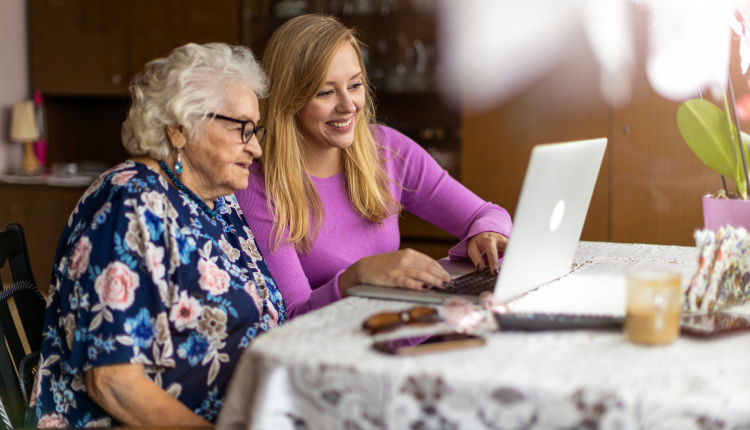
Older people and digitization during COVID-19 pandemic
The topic of “older people and digitization” is more topical than ever. At present, the consequences of inadequate access to digital media for many older people are becoming particularly apparent.
The lack of access to digital media especially for older people often amplifies the negative effects of Corona-19 related measures in a way that seems less and less tolerable. Contact restrictions lead to massive losses of social participation of older people, their quality of life and support, which could be compensated at least to some extent by the use of digital media.
The current situation risks exacerbating the disadvantage of older people, who already lacked access to digital media before the crisis. What can be done about it? The eighth report on aging published by the German Federal Ministry for Family Affairs, Senior Citizens, Women and Youth (BMFfJ), which was prepared by a commission of experts, makes various recommendations in this regard. It advocates enabling all older people to access and use digital technologies. This means that Internet access should be available for them to use in all parts of their homes. Similarly, a framework should be created to ensure that the Internet can be used free of charge in public areas and public facilities throughout the country. Another major concern of the commission is to establish support structures for promoting media competence that are geared to the real world and have so far existed only in isolated cases. Physical and virtual learning spaces should be created and promoted in which older people can try out digital technologies and deal with their opportunities and risks.
A recent expert report found that around 77% of the older adults over the age of 80 are still “offliners” (i.e., people who do not use the Internet). And these are the people who suffer most from contact restrictions, receive less support and attention, especially at times when they are in particular need of it. Therefore, there is an urgent need for action to counteract the double exclusion of many older people.

